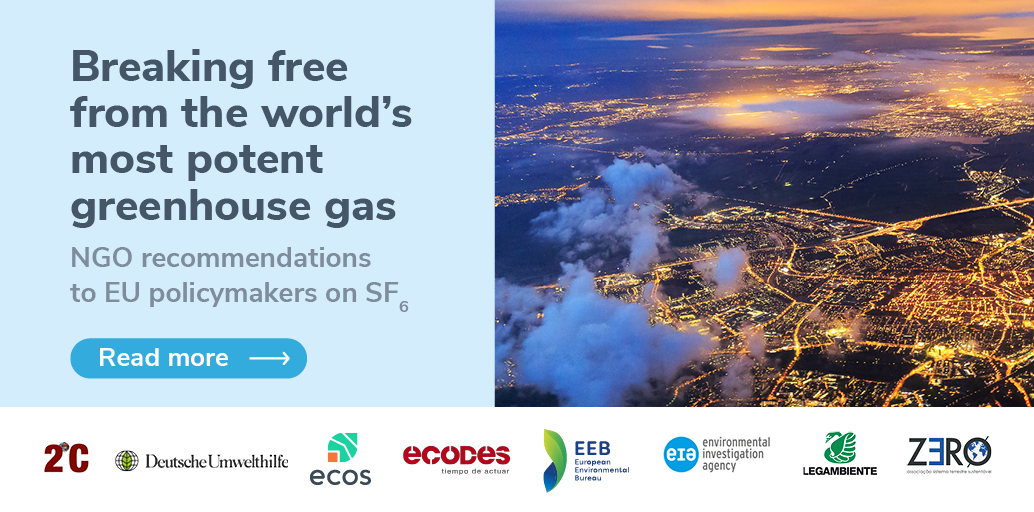Breaking free from the world’s most potent greenhouse gas – NGO recommendations
Sulphur hexafluoride (SF6) is used in electricity grids as an insulating gas in high- and medium-voltage switchgear. It is the world’s most potent greenhouse gas with a global warming potential (GWP) 25,200 times greater than CO2 over a 100-year period. Eight NGOs call on the European Union to introduce an early phase-out of SF6, among other policy recommendations.

Despite its potency, the use of SF6 continues increasing virtually unabated. Emissions from leakages occur during the installation, maintenance, dismantling, replacement, and operation of electrical switchgear, circuit breakers and transformers.
Demand for SF6 in medium- and high-voltage switchgear is on the rise, driven by increasing electricity demand and the urgently-needed switch to decentralised renewable energy sources. The stock of installed medium-voltage switchgear units is expected to increase between 40 and 90 per cent by 2050.
However, the electricity grid needs to be truly clean to reach the European Union’s climate and energy goals. It is therefore essential to phase out SF6. Ambitious policies could help significantly reduce the impacts of SF6.
NGOs call on EU policymakers to:
- Mandate an early phase-out of SF6
- Set ambitious transition times for remaining use cases still relying on SF6
- Ensure the Regulation does not contain any loopholes allowing network operators to continue relying on SF6
- Extend emission containment and reporting obligations to all F-gases used in both existing and new switchgear
- Address SF6 leakages through strict labelling, reporting and monitoring
- Incentivise demand for SF6-free technologies through Green Public Procurement
- Demand a transition towards F-gas-free alternatives only
Recommendations have been endorsed by Asociația 2Celsius (Romania), Deutsche Umwelthilfe (Germany), Environmental Coalition on Standards (ECOS), ECODES (Spain), the European Environmental Bureau (EEB), Environmental Investigation Agency (EIA), Legambiente (Italy), and ZERO (Portugal).
Access the full NGO recommendations here.
For further details, ECOS has produced an in-depth briefing, explaining the rationale behind NGO recommendations on SF6.
Download the document

